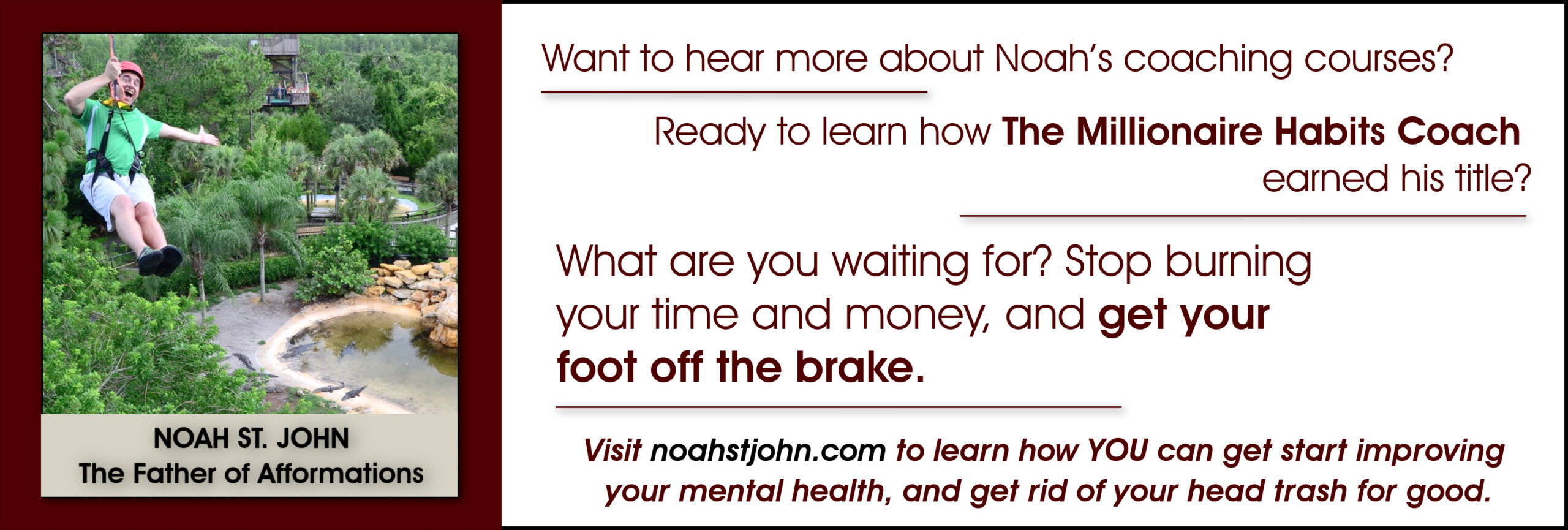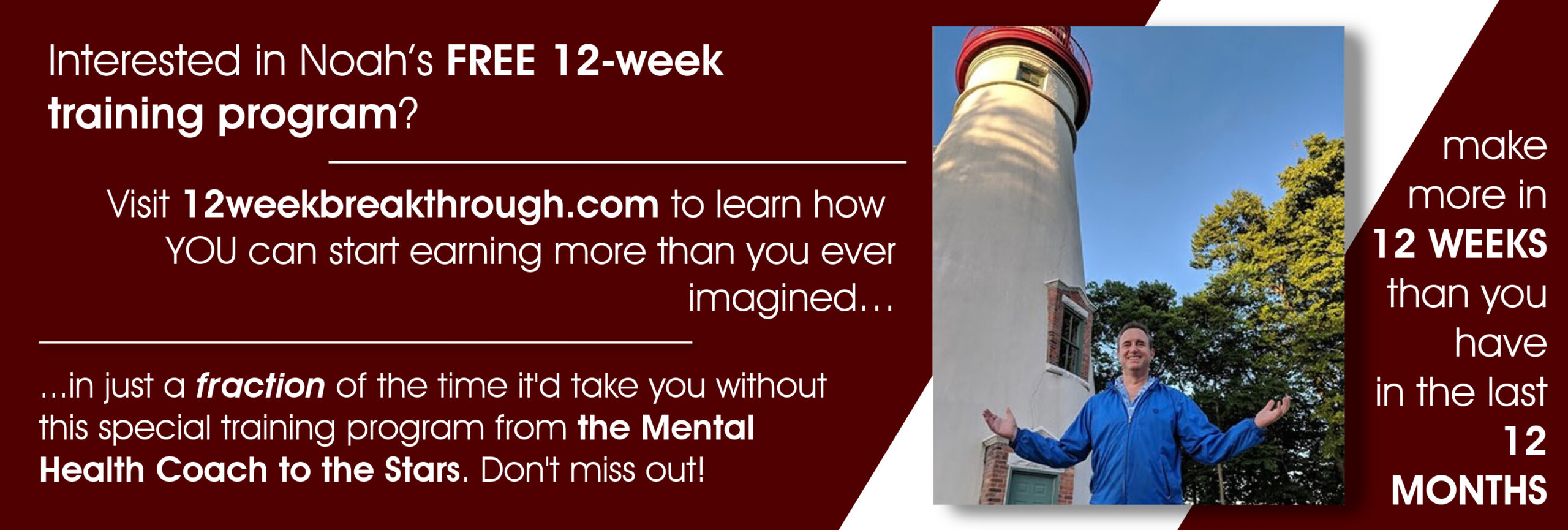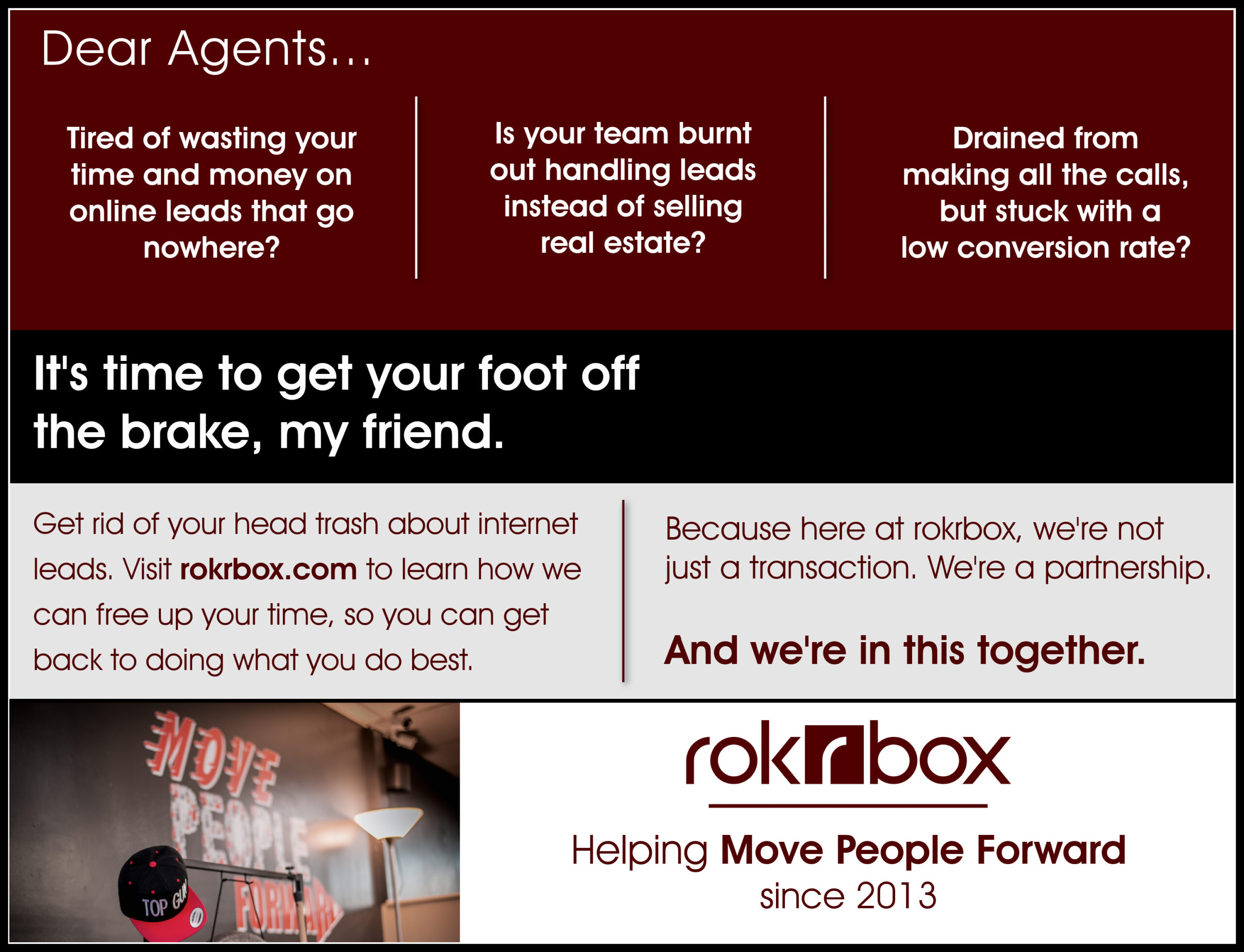Josh shakes things up on this latest episode of rokrbox TV, welcoming a new guest that you won’t want to miss! One of Josh’s oldest friends, Noah St. John—speaker, bestselling author, and founder of SuccessClinic.com—joins the call to share his story, and explain how he ultimately acquired the titles, “The Millionaire Habits Coach,” “The Mental Health Coach to the Stars,” and “The Father of Afformations.” (yes, you read that correctly. Check out the video below, or keep scrolling to learn all about it!)
Josh’s excitement to introduce his old friend, who he met through a business Mastermind, shines through as he gives his special guest a glowing introduction. He tells rokrbox TV viewers that Noah works with Hollywood celebrities, eight-figure CEOs, professional athletes, and top executives & entrepreneurs. Thanks to his exceptional coaching, Noah’s clients have added more than $2.7 billion by following his legendary methods.
Not only has Noah appeared on over a thousand media outlets, but he recently released his new book, Get Rid of Your Head Trash About Money, which viewers can receive for FREE at www.sendmeabooknoah.com (um, did we mention it’s free? Readers only pay shipping costs – be sure check it out!)
Jumping in, Josh touches on a concept that Noah developed, and the subject that his new book is centered on: head trash. “You say that head trash is the number one reason that so many people feel stuck,” Josh says. He invites Noah to define the phrase, and share why head trash holds so many of us back.
Nodding, Noah launches into his journey, explaining that he has been teaching the concept since he started his company, www.SuccessClinic.com, back in 1997. He started out in a 300 square-foot basement apartment in Hadley, MA, “with $800 to my name, and a book on HTML. That’s all I had. I had no money, no marketing experience, no business, no sales.”
But, Noah emphasizes, he did have one thing: “a deep, burning desire to help people—to make difference, to make an impact in the world.”
He tells viewers that he “grew up poor, in a rich neighborhood,” admitting that it sounds like a total cliché, but is true nonetheless. “From a very young age, I was painfully exposed to the gap—the chasm between the haves, and the have-nots,” he says. “So, from a very young age, I was asking the question: why are some people successful, and others not?”
He touches on a common belief that still persists today: the secret to success is hard work. “Bull,” Noah laughs. “I don’t know where they’re getting their information, but that is so not true.” He goes on to say that, of course, he isn’t saying people shouldn’t work hard—just that it isn’t the magical answer to success. As a kid, Noah adds, he watched his parents work really hard, but still fail to gain ground.
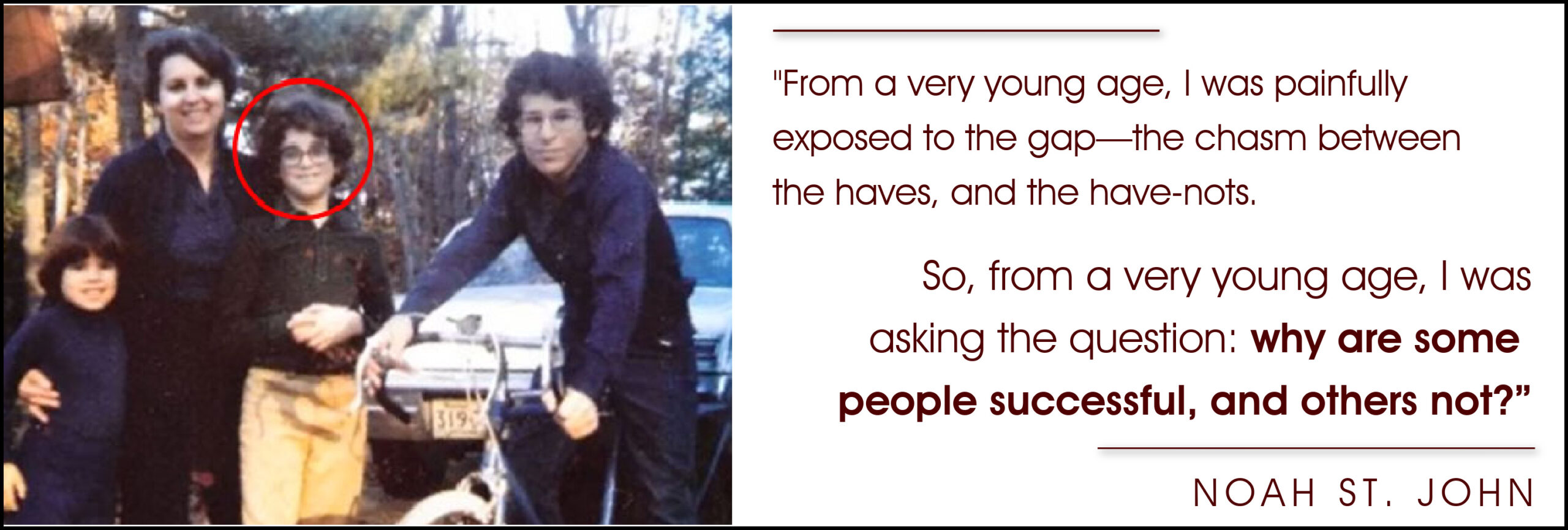
“I’m like the Sheldon Cooper of self-help,” he says, grinning. “I just have to get down to the molecular level, and fix the problem.” He tells Josh that he started reading self-help books as a kid, which all offered the same tired advice: set goals, and think positive. “[It] was all good advice,” Noah admits, “but it didn’t seem to work.”
Noah goes on to say that he exhausted himself in young adulthood trying to achieve his vision of success and happiness, to the point where he was driven to attempt suicide at age 25.
“I was so frustrated,” he says. “I was so depressed. Long story short, I went on a quest to find my purpose here on earth, and it wasn’t until 5 years later I had this epiphany.”
[4:50] It was that moment, Noah explains, when he had a life-changing epiphany: he realized exactly what was holding him back, and what was holding millions of people back from achieving the level of success they were capable of: head trash.
Noah explains that head trash is a term he created “that really describes this whole phenomenon of why so many smart, creative, talented people hold themselves back…If I were to boil it down to one simple thought, it comes down to the belief that ‘I can’t do it’.”
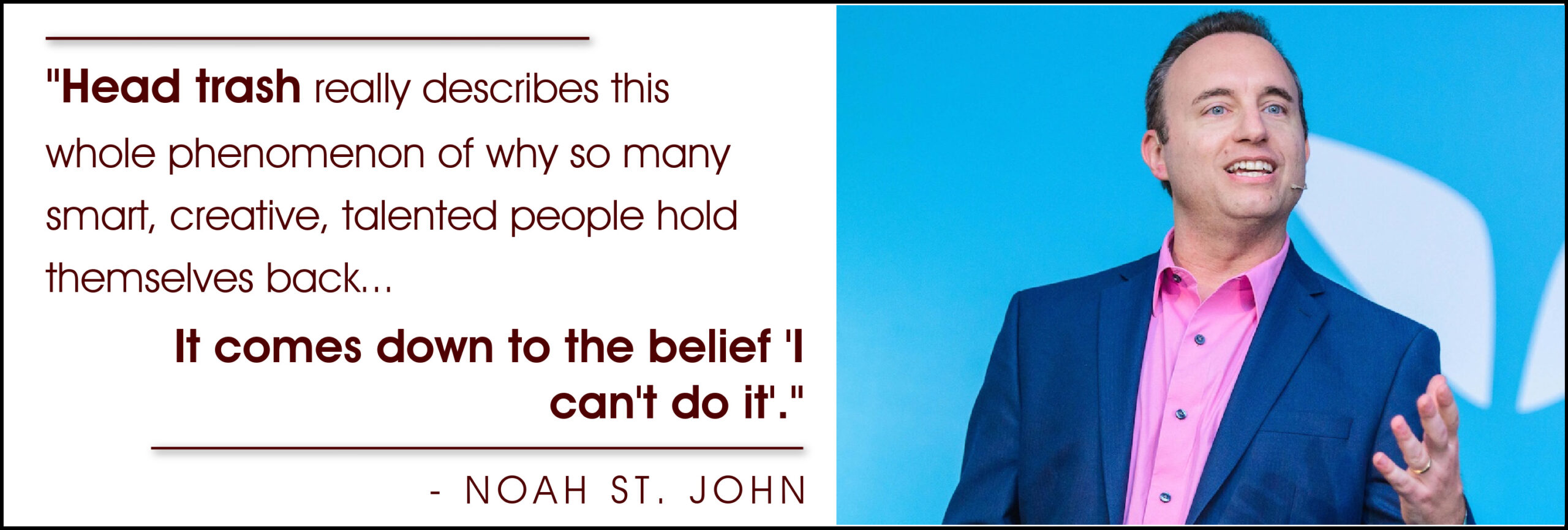
Noah tells Josh that most of us have head trash, and are familiar with the thought, ‘I can’t do this because…,’ prompting us to fill in that blank a never-ending list of reasons why we can’t achieve our dreams. “Whatever you tell yourself after the word because,” Noah stresses, “is what’s going to be true for you.”
[7:30] Referring to an example from Henry Ford, who said, “Whether you believe you can or can’t, you’re right.” Acknowledging the validity of Ford’s words, Noah explains that he coined his own variation of the idea that’s more applicable to the modern world.
“What I like to say,” Noah says, “is whether you believe you can, or believe you can’t, you make yourself right. Isn’t it amazing that there are so many people out there who would rather be right than rich, [or] happy? That’s why head trash keeps so many people stuck.”
[8:20] Transitioning to Noah’s coaching program, Josh points out that Noah has helped countless clients achieve staggering levels of success. He references impressive testimonials on Noah’s site, all of which attest to Noah’s valuable skills and credibility as a life coach. In fact, many people say they’ve made more money in 12 weeks than in the last 12 months, thanks to Noah’s help. (For more information on Noah’s 12-week program, visit www.12weekbreakthough.com.)
Noah compares reaching our goals to driving a car, explaining that it wouldn’t make sense for you to reverse out of your driveway, drive around in circles, and return to your home—and yet, in terms of our lives and businesses, that’s what many people do.

The reason this act is senseless, Noah concludes, is twofold: first, not having a destination in mind at the end of your journey; secondly, even if you do have a destination, you don’t know why you’re going there to begin with—which is why goal-setting is only one part of the equation.
Taking the analogy a step further, Noah encourages viewers to imagine driving a car towards a destination with one foot on the brake. “How long will it take you to get there?” he challenges. “In some cases, you’ll never get there. Meanwhile, you’re losing lots of time, money, and energy to get nowhere.”
He proceeds to walk viewers through 3 scenarios: even if the driver attempts to remedy their solution by investing in better gas, investing in better tires, or even purchasing a better car, the original issue remains the same.
“You’re still doing the same thing, and you’re getting the same result,” Noah concludes. The solution, he says, is just taking your foot off the brake in the first place.
“It’s literally that simple,” he explains. “Everybody else out there is pushing you [to] step on the gas harder, but if you have your other foot on the brake, you’re just going to ruin your car faster. So that’s what makes my program different.”
Josh transitions to the subject of unconscious habits, a concept that Noah frequently references in his books, inviting him to elaborate on that topic.
“Nobody wakes up in the morning and says, ‘This looks like a beautiful day…the sun is shining, birds are singing. I think I’ll hold myself back from success today.’ That’s silly, because that would be a conscious thought,” Noah adds, explaining that it’s the unconscious thoughts that truly hold us back.
[15:20] “That means you don’t have a choice,” Noah concludes. “That means you can only change something when you you’re aware of it, right? The first step of transformation is awareness.”
Nodding in agreement, Josh directs the conversation to the nickname Noah has earned as “The Father of Afformations,” inviting him to share the meaning behind the word. “How are ‘Afformations’ different from traditional affirmations?” Josh prompts.
[17:55] Noah answers that the distinction in spelling is meant to shed light on a key difference between the traditional word, and the Afformations he uses in his coaching.
[18:20] In his presentations, Noah uses a technique where he instructs his audience to vocalize the words, “I am rich.” He says this always prompts laughter from participants.
Why? Because they don’t believe they’re rich.

[18:40] “See, that’s the problem with traditional affirmations,” Noah says. “We say these positive statements, but we just don’t believe it, right? So what I invented back in 1997 was a process that I call Afformations…Psychologists call it the ‘embedded presupposition factor.’ All that means is, when you ask a question, your brain has to search for the answer.”
Noah goes on to tell Josh how this impacts our mentality as human beings: if we continuously voice a statement we don’t believe, our brains will continue not to believe it. In fact, many people who use traditional affirmations in hope of encouraging themselves will end up feeling worse than before, which is obviously contrary to the point of affirming ourselves to begin with.
[20:10] Acknowledging that the majority of Josh’s rokrbox TV viewers are involved in real estate, Noah uses one of his former real estate clients as an example: an agent named Bill, with 40 years of experience in the real estate industry. Despite being seasoned in the field, Bill confessed to Noah that, although he was doing okay, he still wasn’t reaching the level of success he wanted.
[20:40] “[After] going through my coaching, and going through my rapid abundance programming method, he started doing multi-million dollar deals,” Noah explains. “Then doing multi-billion dollar deals. So he made about 300 million dollars in less than three years, as a result of this methodology.”

Although Noah has helped clients achieve millions in the real estate industry, he admits that, technically, he doesn’t teach people how to make money in real estate—or network marketing, or entrepreneurship, or any other realm. Not specifically, that is.
[21:25] “But what I do teach is why and how you’re holding yourself back,” Noah specifies. “And then, of course, the second part is how to stop stopping yourself—how to get your foot off the brake.”
Thanking Noah for sharing his valuable insights, Josh inquires about another one of Noah’s teaching concepts: why willpower isn’t an effective way to change a habit.
[22:00] Noah replies that a ‘habit’ can be broken down into 5 stages: the cue, the routine, the reward, the craving, and the belief. He compares the concept of willpower to resisting a tempting plate of fresh-baked chocolate chip cookies—that someone tells us not to eat.
[23:10] “What are you going to do as soon as [that person] leaves the kitchen?” Noah says, grinning. “You’re going to go nuts, right? That’s why willpower doesn’t work, because you’re trying to deprive yourself of something. And we humans don’t like to deprive ourselves of anything.”
[23:50] Noah reiterates that willpower isn’t wrong, per say—it’s just that scientific studies have shown that it’s a very limited resource, and doesn’t come naturally to humans from the get-go. But, he says, once we understand what a habit truly is, we can start to use a habit properly, and then, we can take our foot off the brake.
Reminding listeners that head trash affects so many areas of our lives—a result of so many people being unaware of it—Noah stresses a key point: the first step of any transformation is awareness.
[25:40] “I love it,” Josh responds, and laughs as Noah reaches for his water, adding, “Yeah, you probably wanna take a sip of water there, right? You’ve just been firing out all the bullets.”
Giving Noah a well-deserved breather, Josh reminds listeners that they can get Noah’s free book at www.sendmeabooknoah.com (readers only have to cover the cost of shipping).
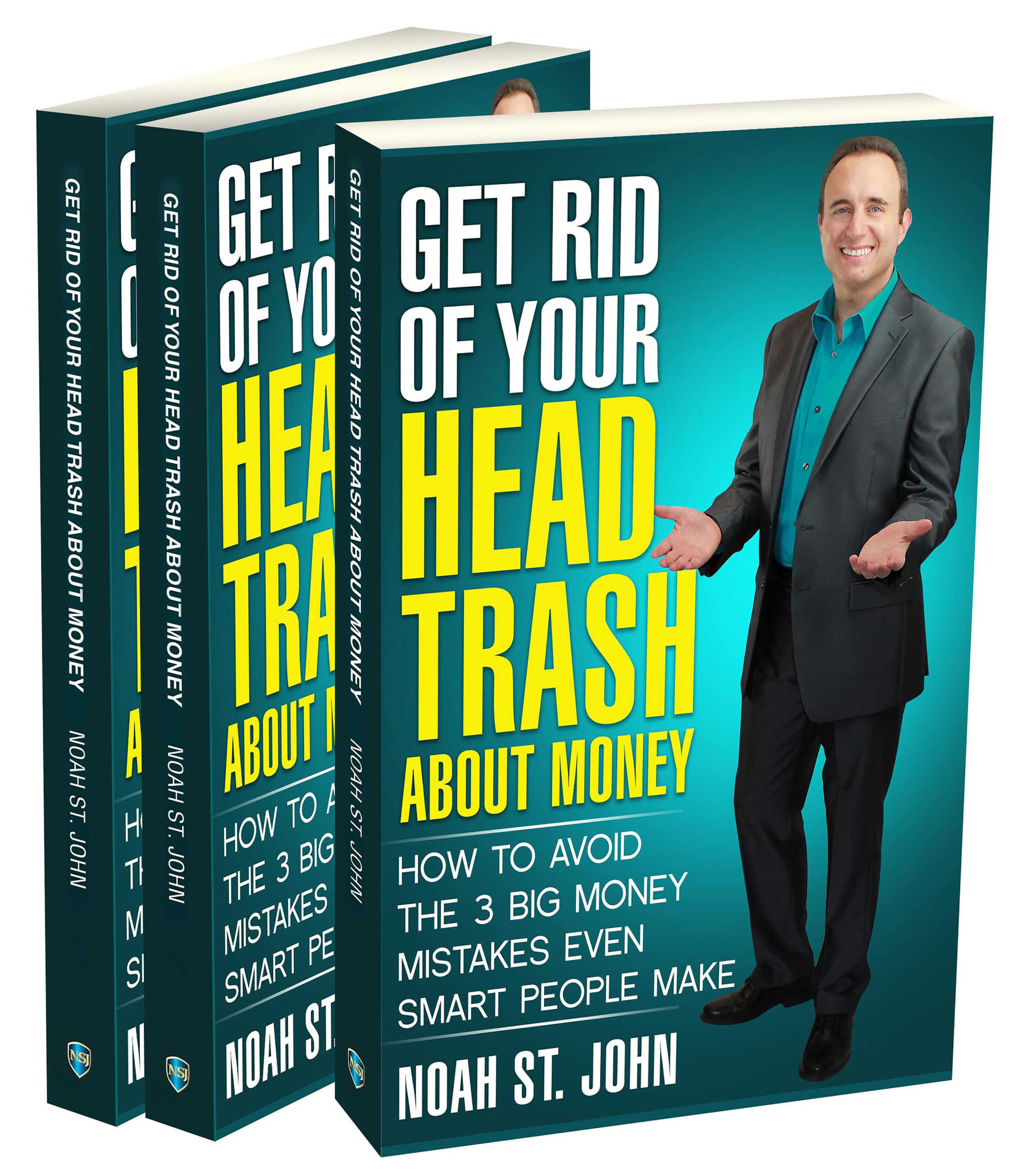
[26:45] Josh explains how Noah’s words can be directly tied into his team’s hard work at rokrbox, too, where his dedicated ISAs have countless over-the-phone conversations with aspiring home-owners all over America.
“We always focus on ways to make that conversation more comfortable,” Josh says. “So if we can use that in sales, and scripting, and dialogue, to get to [someone’s] subconscious mind, and persuade them to take action, then how effective is it on ourselves? It’s probably ten times more effective. Because, like you said: you make it right—whether you say you can, or say you can’t.”
